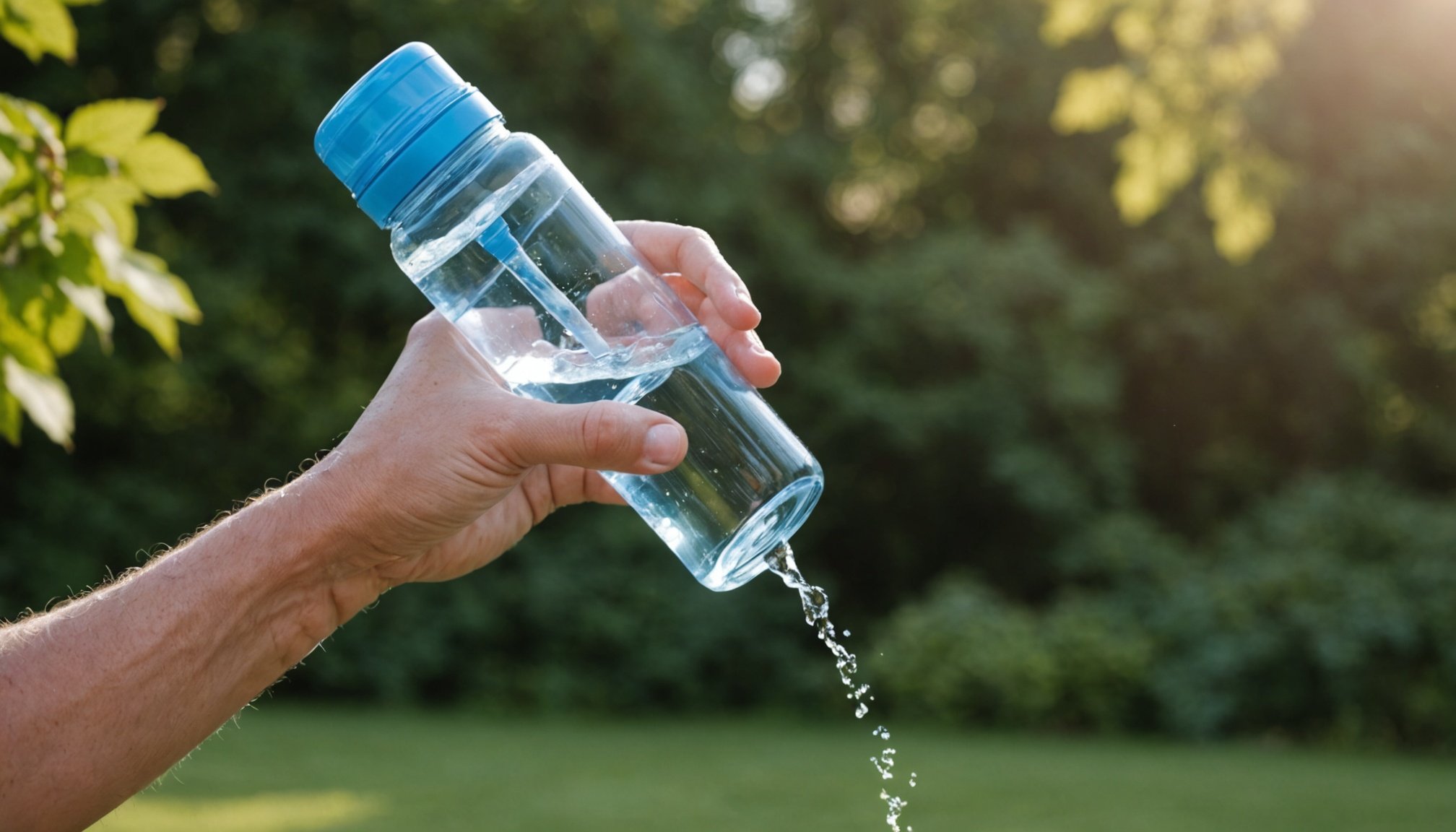When it comes to maintaining good health, the significance of hydration often slips under the radar. While many might prioritize diet and exercise, the importance of adequate fluid intake cannot be overstated. In the UK, where the weather shifts from the cold dampness of winter to the rare but scorching heat of summer, staying hydrated is essential for everyone—from toddlers to older adults. This article delves into the crucial role that proper hydration plays in our overall health, examining how water affects our body and why it is imperative to maintain a balanced fluid intake.
Understanding Hydration: The Basics
Water is the foundation of life, a component that constitutes approximately 60% of the human body. It is not merely a fluid to quench thirst but a critical element that supports numerous bodily functions. From aiding digestion to regulating body temperature and maintaining skin elasticity, water is indispensable.
In parallel : How can stress management techniques improve workplace health in the UK?
In understanding hydration, we must also consider dehydration—a state that arises when water loss exceeds intake. With dehydration, the body struggles to perform efficiently, leading to symptoms such as headaches, dizziness, and fatigue. Prolonged dehydration can have more severe consequences, affecting kidney function and heart health.
The science of hydration goes beyond simple consumption. It involves maintaining the right balance of electrolytes and fluids within our body. Osmolality, a term that refers to the concentration of solutes in body fluids, plays a vital role in this balance. Maintaining the right osmolality is crucial for cellular function and overall health.
Also to read : What are the benefits of outdoor activities for mental health in urban UK environments?
Studies have shown that regular fluid intake aids in cognitive function and mood stabilization. For UK citizens, especially those living in urban environments, where stress levels can run high, staying hydrated is a simple but effective way to enhance mental clarity and emotional balance.
Hydration Across Different Age Groups
Hydration needs vary significantly across age groups, and understanding these differences is crucial for maintaining optimal health. Children, for instance, are more susceptible to dehydration due to their higher body water content and greater fluid turnover. Encouraging regular drinks of water throughout the day is vital, especially for active youngsters.
For older adults, the sensation of thirst diminishes with age, making them prone to dehydration. This can lead to complications such as urinary tract infections, kidney stones, and in severe cases, hospitalizations. It is important for caregivers to encourage regular fluid intake and provide alternative drinks like herbal teas or broths for those who may not prefer plain water.
The working-age population, including the bustling office workers of the UK, often neglects hydration amidst their busy schedules. While caffeinated drinks like tea and coffee are staples, they contribute to fluid intake but should not replace water. The key is to balance these with adequate water consumption to maintain health and performance.
Pregnant and breastfeeding women have unique hydration needs due to increased blood volume and milk production. Ensuring that fluid intake is aligned with these physiological changes is vital for the health of both mother and child.
Whether young or old, maintaining a balanced fluid intake is fundamental to preventing dehydration and promoting overall well-being.
The Impact of Hydration on Physical and Mental Health
The role of hydration extends beyond basic health maintenance; it significantly impacts both physical and mental well-being. In the realm of physical health, adequate water consumption aids in digestion, ensuring the smooth function of our gastrointestinal system. It helps in flushing out toxins and supports the kidneys in filtering waste products.
For those involved in sports or regular physical activities, hydration is crucial. Water regulates body temperature, preventing overheating and ensuring optimal performance. For athletes, the loss of even a small percentage of body weight through sweat can impact endurance and strength.
Mentally, hydration supports cognitive function, concentration, and mood. When the body is well-hydrated, the brain operates more efficiently, enhancing memory and mental alertness. For students and professionals alike, maintaining proper fluid intake can lead to better focus and productivity.
Moreover, hydration has been linked to emotional stability. Studies indicate that even mild dehydration can result in irritability and anxiety. For those combating stress or mental health issues, water intake serves as a simple yet effective strategy to promote calmness and clarity.
In summary, hydration is a cornerstone of both physical vigor and mental resilience, underscoring its importance in our daily lives.
Practical Tips for Maintaining Hydration in the UK
Maintaining proper hydration can be challenging, especially in a fast-paced environment like the UK. However, incorporating a few practical strategies can help ensure adequate fluid intake.
Start each day with a glass of water. It kickstarts the metabolism and replenishes the fluids lost overnight.
For those who find plain water unappealing, infuse it with slices of fruit like lemon or cucumber for a refreshing twist. Herbal teas, which are caffeine-free, can also be a comforting alternative, especially during the colder months.
Monitor your intake by using a reusable water bottle. This not only reduces plastic waste but also encourages frequent sips throughout the day.
Incorporate water-rich foods into your diet. Fruits and vegetables like watermelon, cucumbers, and oranges contribute to overall fluid consumption. Soups and stews, staples in UK cuisine, also provide additional fluids.
Be mindful of drinks that can lead to fluid loss, such as caffeinated or alcoholic beverages. While they can be enjoyed in moderation, they should not replace your daily water intake.
In workplaces, where drinks like tea are popular, establish a routine of alternating between tea and water. This balance will help maintain hydration without compromising on cultural habits.
By integrating these simple yet effective practices into your daily routine, you can ensure a steady and sufficient fluid intake, promoting better health across all aspects of life.
Hydration plays an indispensable role in the fabric of our health, affecting everything from physical performance to mental clarity. For UK citizens, where lifestyle and weather variations present unique challenges, understanding and prioritizing fluid intake is vital. By recognizing the importance of water and adopting practical strategies to incorporate it into daily life, individuals across all age groups can safeguard their health and enhance their quality of life.
As you go about your daily routines, remember that maintaining hydration is not a luxury but a necessity. It’s an investment in your health, ensuring that both your body and mind operate at their optimal best, allowing you to navigate life’s challenges with resilience and ease.











